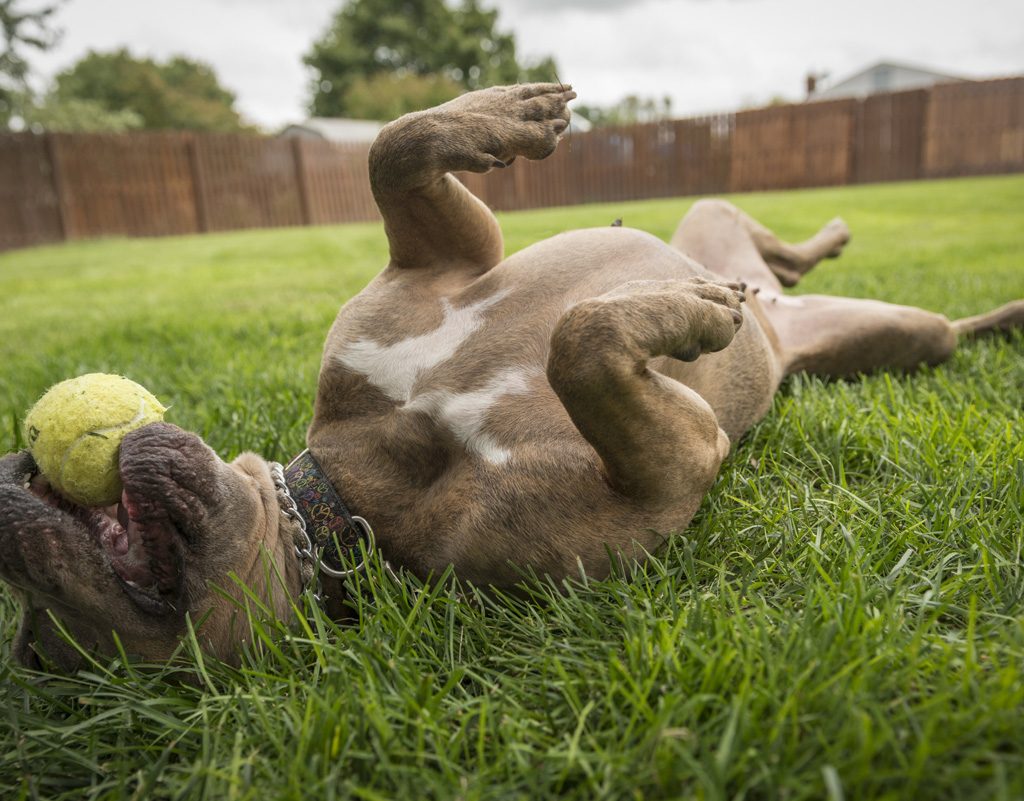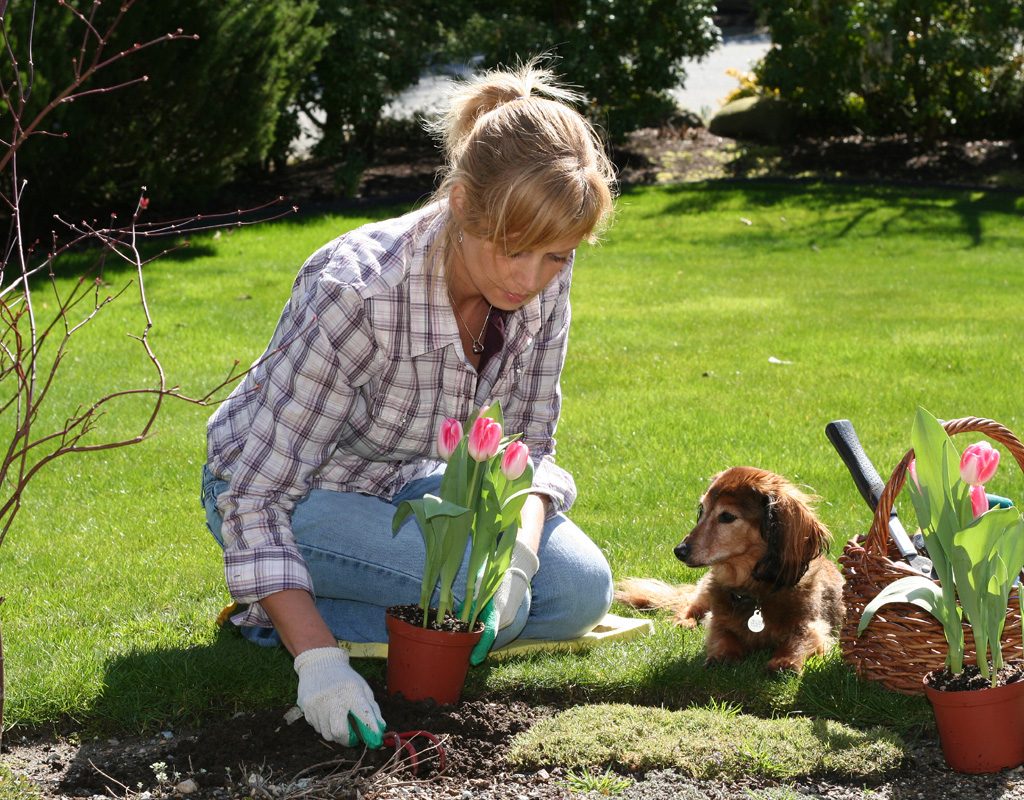Dogs who follow sunny spots around the house during cold winter months can’t wait to spend time outside once spring arrives. Whether your pooch is chasing a ball or curling up under the shade of a favorite tree, it’s important that the backyard is a safe space to hang out. Unfortunately, the lushest lawns and gardens in the neighborhood often have been treated with chemicals that are toxic to pets, according to veterinarian Karen Becker.
A six-year study at Tufts University, Cummings School of Veterinary Medicine found that exposure to lawn pesticides raised the risk of canine malignant lymphoma by as much as 70 percent. Another study, by the Department of Veterinary Clinical Science at Purdue University, revealed that certain garden and lawn chemicals are linked to bladder cancer in dogs.

What yard care products will endanger my dog?
Fertilizers
According to experts at the Pet Poison Helpline, fertilizers that contain blood meal, bone meal, feather meal, and iron may be especially dangerous for dogs. Large intake of these products can form a concretion in the stomach, potentially obstructing the gastrointestinal tract and causing severe pancreatitis. Fertilizers containing iron can result in iron poisoning in dogs.
Pesticides and insecticides
The ingestion of pesticides and insecticides, especially those containing organophosphates and carbamate, can be life-threatening to pets. Veterinary experts at PetMD say toxic levels of carbamate insecticides like methomyl and carbofuran can cause seizures and respiratory arrest in dogs. Dogs who ingest products containing organophosphate may suffer from chronic anorexia, muscle weakness, and muscle twitching, which may last for days or even weeks.
Herbicides
Roundup, one of the most popular weed killers, contains glyphosates that block the enzymes needed for plant growth. There are more than 750 herbicide products in the U.S. that contain glyphosate, according to the National Pesticide Information Center. Wisconsin veterinarian Michelle Krusing Weidenkopf of Holistic Veterinary Options notes that studies have linked glyphosates to increased incidence of lymphoma and bladder cancer in dogs and can also lead to liver and kidney damage.
Slug and snail baits
Slug and snail baits, which come in a variety of forms including pellets, granules, powder, and liquid, contain the active ingredient metaldehyde. Metaldehyde is poisonous to dogs and cats and can be fatal if not treated by a veterinarian. When ingested, metaldehyde produces signs of distress within one to two hours, including salivation, restlessness, vomiting, tremors, seizures, and a life-threateningly high body temperature, say experts at the Pet Poison Helpline.
What natural yard care choices do I have?
All chemical pesticides are toxic, so to keep your dog and family safe, you need to find natural ways to care for your yard and garden. The most environmentally friendly way to keep weeds at bay is to remove them by hand as soon as they sprout. Once your garden is weed-free, you can use a layer of mulch or paper to keep flowerbeds looking their best. Another option for eliminating weeds is to make your own pet-friendly weed-killer spray using a combination of white vinegar, salt, and liquid dishwashing soap.
It’s also possible to purchase natural organic lawn and garden products. Here are three highly-rated pet-friendly products.
- Espoma Organic Weed Preventer is an all-natural lawn food made from corn gluten meal. According to the manufacturer, this product kills dandelions, crabgrass, and other common weeds.
- Just for Pets Weed Killer Spray contains all-natural ingredients and is safe to use on weeds anywhere on your property. A portion of the sale of this product benefits shelter animals.
- Green Gobbler 20% Vinegar Weed and Grass Killer is a certified-organic spray recommended for keeping crabgrass, dandelions, clover weeds, white clover, and moss under control.

While you can control what you use on your property, you can’t stop your neighbors from using products containing toxic chemicals. So, when walking your dog, be sure to steer clear of perfectly manicured weed-free lawns or those displaying recently treated tags. When you return to your yard, you can sit back and enjoy watching your dog rolling and playing in the grass, knowing it’s free from harmful chemicals.



